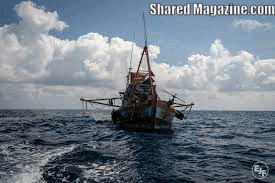Ethical Seas: Navigating Towards a Sustainable Future for Our Oceans
Introduction
In the complex world of business, ethics, and governance, one term that holds significant weight is “compliance.” Often discussed in boardrooms, regulatory circles, and management seminars, compliance is a multifaceted concept that goes beyond mere adherence to rules and regulations.
In this exploration, we embark on a journey to unravel the layers of compliance, understanding its nuances and recognizing its pivotal role in shaping ethical business practices.
Human Activities and Ethical Seas
One of the primary challenges to ethical seas arises from human activities. Unregulated fishing practices deplete fish stocks, threatening the balance of marine life. Pollution, from plastic waste to chemical runoffs, poses a significant ethical dilemma. To navigate these challenges, a paradigm shift is needed—one that embraces sustainable practices and acknowledges the responsibility we hold for the seas.
Charting a Course for Responsible Seas
Sustainability is the compass guiding us toward ethical seas. Implementing sustainable fishing methods, such as selective gear and catch quotas, ensures a balance between human needs and ecological health. Embracing eco-friendly approaches, like reducing single-use plastics and enforcing stricter industrial regulations, contributes to the overall well-being of our seas. The journey towards ethical seas begins with individual choices and industry-wide commitments to sustainable practices.
Uniting for Ethical Seas
The quest for ethical seas extends far beyond individual efforts. Global initiatives, enshrined in agreements like the United Nations Sustainable Development Goal 14, showcase a collective commitment to safeguarding our oceans. Conventions such as the Convention on Biological Diversity emphasize the shared responsibility to protect marine life. By joining hands on a global scale, we amplify our impact and demonstrate that the preservation of ethical seas is a shared mission for humanity.
Navigating the Waves of Change
The path to ethical seas is not without challenges. Resistance to change, inadequate enforcement, and the need for technological advancements pose hurdles. Addressing these challenges requires a concerted effort—fostering community responsibility, strengthening regulatory frameworks, and investing in technology and research. By confronting these obstacles, we pave the way for a future where this seas flourish, ensuring the vitality of our oceans for generations to come.
In conclusion, the journey to this seas is a collective voyage—one where every individual, community, and nation plays a crucial role. By embracing sustainable practices, supporting global initiatives, and addressing challenges head-on, we can navigate towards a future where our seas thrive ethically. It’s a journey of responsibility, awareness, and a shared commitment to leaving a positive legacy for the oceans that sustain us.
(FAQs)
What are ethical seas?
Seas refer to the practice of responsible and conscientious behavior to ensure the health and sustainability of marine ecosystems. This involves recognizing the interconnectedness of marine life and the impact of human activities on oceans.
How can individuals contribute to ethical seas?
Individuals can contribute by adopting sustainable practices, reducing plastic use, supporting eco-friendly initiatives, and raising awareness about the importance of seas.
Are there international efforts to promote ethical seas?
Yes, global initiatives like the United Nations Sustainable Development Goal 14 and conventions such as the Convention on Biological Diversity emphasize international cooperation to protect marine life and promote seas.
What are the main challenges to achieving ethical seas?
Challenges include unregulated fishing practices, pollution, resistance to change, and the need for effective enforcement. Overcoming these challenges requires a collaborative and multifaceted approach.
How can technology contribute to ethical seas?
Technology can aid in monitoring and enforcing ethical standards, from tracking sustainable fishing practices to identifying and addressing pollution sources. Embracing technological advancements is crucial for the future of seas.
Conclusion
Compliance is not a mere obligation but a compass that guides organizations through the ethical seas of modern business. As we navigate the intricate currents of regulations, ethical considerations, and societal expectations, it becomes evident that compliance is not just a legal requirement; it is a commitment to ethical excellence.
In a world where trust and reputation hold immense value, embracing compliance becomes not only a strategic advantage but a moral imperative for businesses aiming to thrive in the complex tapestry of the global marketplace.



